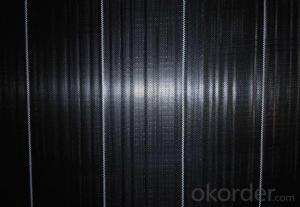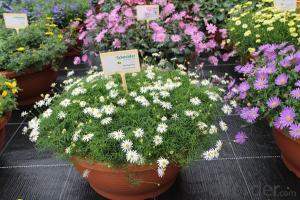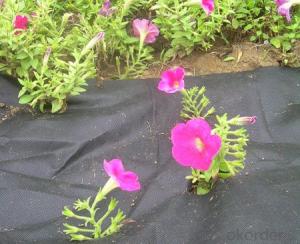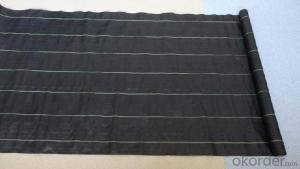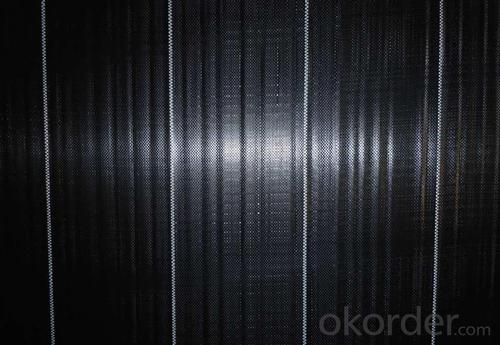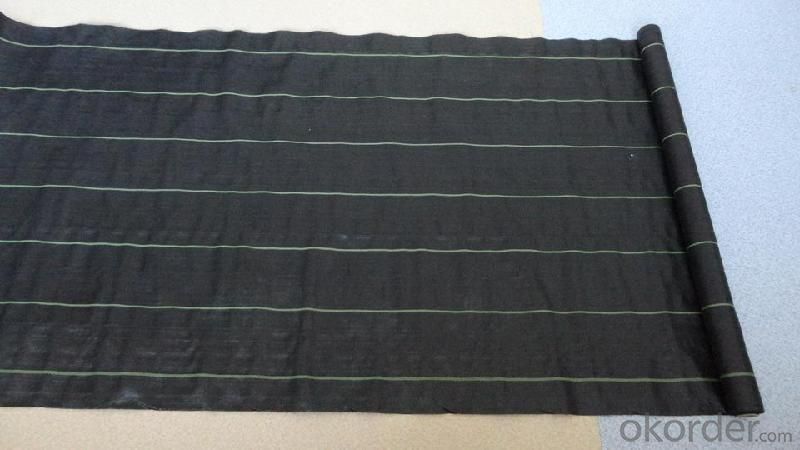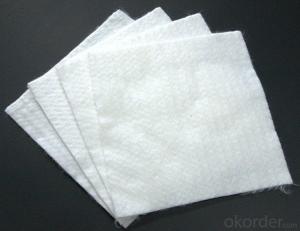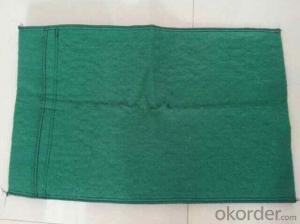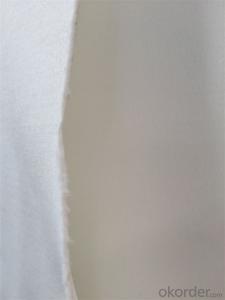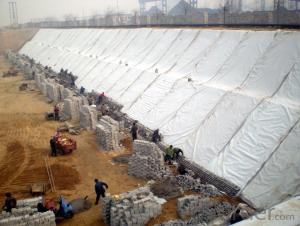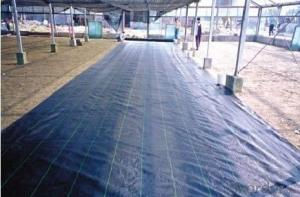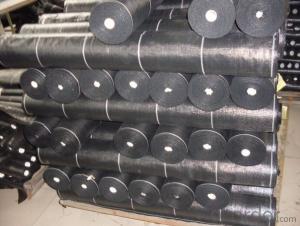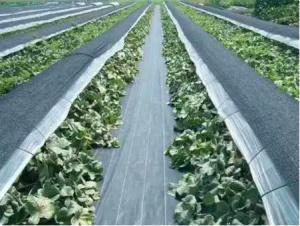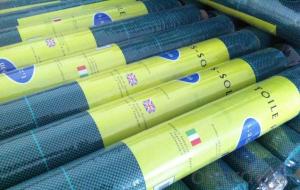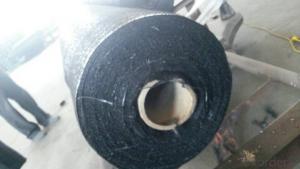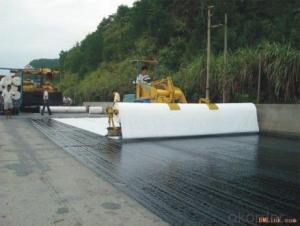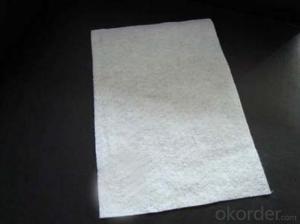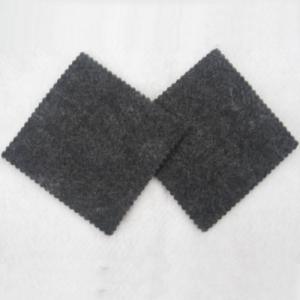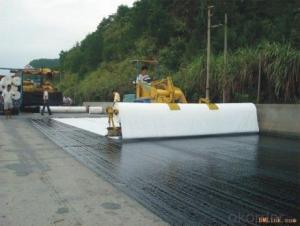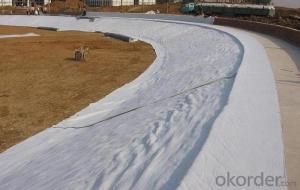Geotextile for Riprap PP Garden Ground Cover Anti Weed Mat - China Cheap Agriculture Weed Control Mat
- Loading Port:
- Qingdao
- Payment Terms:
- TT OR LC
- Min Order Qty:
- 500 m²
- Supply Capability:
- 500000 m²/month
OKorder Service Pledge
OKorder Financial Service
You Might Also Like
Product Description
The weed control mat is made of environmentally friendly raw materials, pp woven fabric. It used to prevent the growth of weed, without the use of potentially dangerous chemical sprays or labor intensive hoeing. Once installed, weed mat will continue providing protection for years without maintenance.
They are permeable fabrics, which allow air, water and nutrients to pass through, and designed to block out the sun to reduce photosynthesis and stop weed growth.
Specification
ROPERTY | ASTM TEST METHOD | Minimum Average | Minimum Average |
Mass per unit Area | ASTM D-5261 | 3.0 oz/yd2 | 100 g/m2 |
Grab Tensile | ASTM D-4632 | 145 lbs | 660 N |
Grab Elongation | ASTM D-4632 | 15% | 15% |
Trapezoid Tear | ASTM D-4533 | 55 lbs | 245 N |
Water Flow Rate | ASTM D-4491 | 5 gal/min/ft2 | 203 L/min/m2 |
UV Resistance | ASTM D-4355 | 70% @ 500 hrs | 70% @ 500 hrs |
ROLL DIMENSIONS | |||
Roll Width | 0.9m (3’) | 1.8m (6') | 2.7m (9') |
Roll Length | 91.4m (300’) | ||
Roll Weight | 8kgs (17lbs) | 16kgs (34lbs) | 24kgs (52bs) |
Features
1. Weed suppressant and drainage control landscaping fabric
2. Easy to use, Environmentally friendly
3. Allows water, air and nutrients through, suppressing weeds without the use of chemicals
4. Reduces the level of watering required due to the slower rate of water evaporation
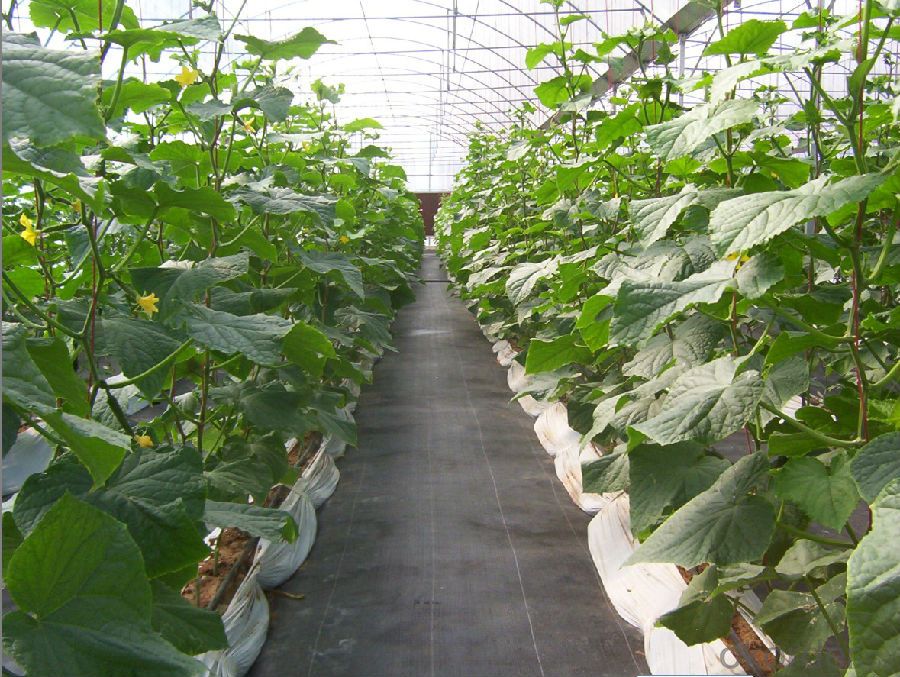
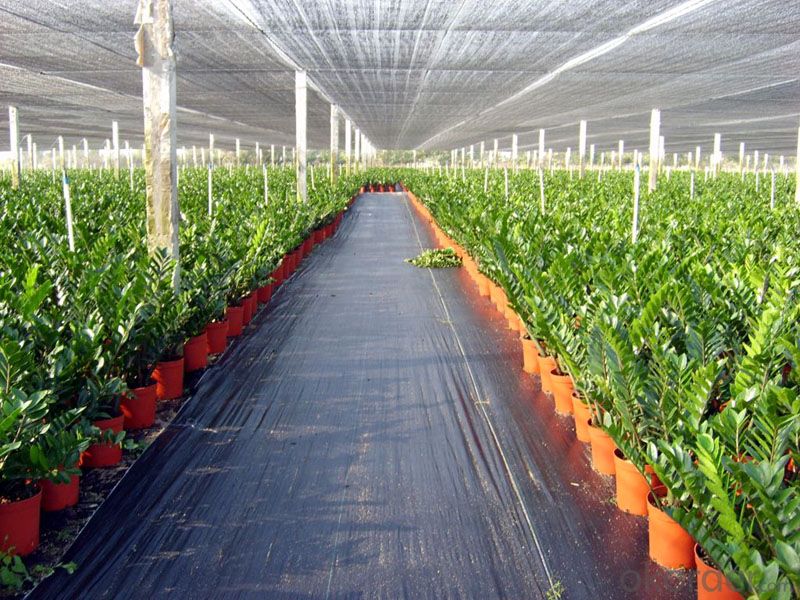
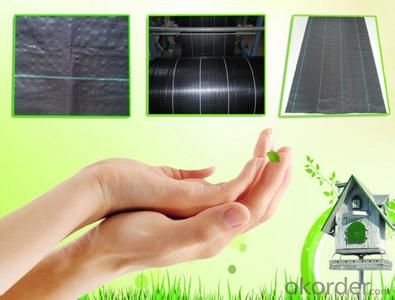
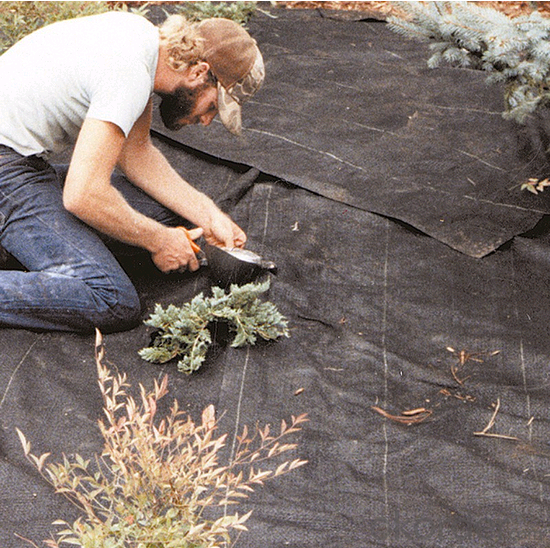
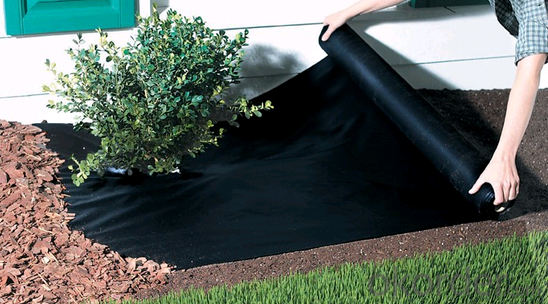
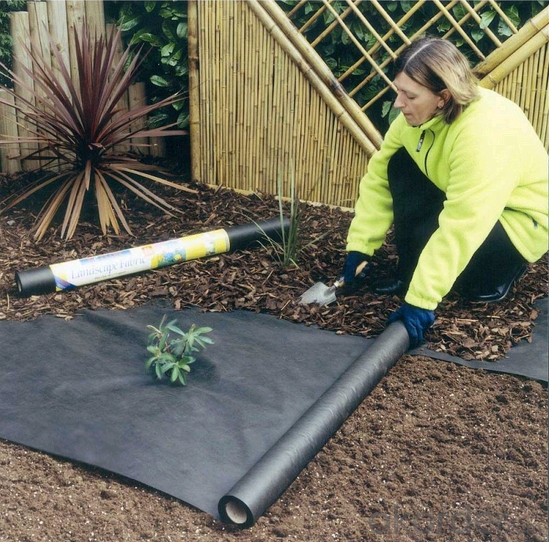
FAQ
1, Samples Policy
Samples are free, but the freight is on customers' charge
Samples will usually be sent out in one day.
2, Prices
As for the prices, we need you to provide us weight, color, width and usage so that
we can quote you best.
3, How to place an order?
Inquiry
Reply
Sample
Contract
Receiving deposit& production
Testing& Packing
Delivery
Receiving
- Q: How do geotextiles improve the performance of geosynthetic clay liners?
- Geotextiles improve the performance of geosynthetic clay liners by acting as a cushioning layer, preventing the direct contact between the clay liner and the surrounding soil, which helps to reduce the risk of puncture or damage to the liner. Additionally, geotextiles enhance the drainage capabilities of the clay liner by allowing water to pass through while retaining the clay particles, which improves the liner's hydraulic conductivity and overall performance in terms of filtration and containment.
- Q: How do geotextiles help with pipeline protection?
- Geotextiles help with pipeline protection by acting as a barrier between the pipeline and the surrounding soil. They prevent soil particles from infiltrating the pipeline, which can cause corrosion and damage. Geotextiles also provide stability and support to the pipeline, reducing the risk of settlement and potential structural failures. Additionally, they aid in filtration by allowing water to pass through while retaining soil particles, ensuring proper drainage and preventing clogging of the pipeline.
- Q: Can geotextiles withstand harsh weather conditions?
- Yes, geotextiles are designed to withstand harsh weather conditions. They are made from durable materials that are resistant to UV radiation, moisture, and fluctuating temperatures. Geotextiles provide long-lasting protection and stability in various weather conditions, making them suitable for use in challenging environments.
- Q: What are the durability considerations for geotextiles?
- Durability considerations for geotextiles include factors such as UV degradation, chemical resistance, mechanical strength, and resistance to punctures and abrasions. Geotextiles should be designed to withstand harsh environmental conditions and maintain their functionality over an extended period of time.
- Q: Alteration of highway seepage control geotextile is generally placed in what position
- Apply to the grassroots level of water defense, the use of embedded, covered with thickness should not be less than 30CM, soil to be solid, to avoid uneven subsidence, cracks. Lap width should be greater than 15CM.
- Q: Are geotextiles resistant to chemical leaching?
- Yes, geotextiles are generally resistant to chemical leaching. They are designed to withstand exposure to various chemicals and prevent their migration through the fabric, making them an effective barrier against chemical leaching.
- Q: Can geotextiles be used in geosynthetic clay liner applications for containment systems?
- Yes, geotextiles can be used in geosynthetic clay liner applications for containment systems. Geotextiles are often used as a component in geosynthetic clay liners to enhance their performance by providing additional reinforcement, filtration, and separation functions. They help to improve the overall stability, filtration, and hydraulic properties of the liner system, making it an effective solution for containment applications.
- Q: what is the function of geotextiles in footing any photos?
- tis like the subway put some liver in ur mouth In the middle of rush hour whore some year old mayonnaise meets yesterdays tuna It’s end of line.!!!!!!!!
- Q: What is the length of the lap when the two-way geogrid is used? What is the geotextile lap length?
- Two-way lap length is 50cm, nailed. Geotextile lap length is 50cm to 1m
- Q: Concrete maintenance with geotextile, Tonglu how to buy
- Huazhi geotextile material manufacturers
Send your message to us
Geotextile for Riprap PP Garden Ground Cover Anti Weed Mat - China Cheap Agriculture Weed Control Mat
- Loading Port:
- Qingdao
- Payment Terms:
- TT OR LC
- Min Order Qty:
- 500 m²
- Supply Capability:
- 500000 m²/month
OKorder Service Pledge
OKorder Financial Service
Similar products
Hot products
Hot Searches
Related keywords
